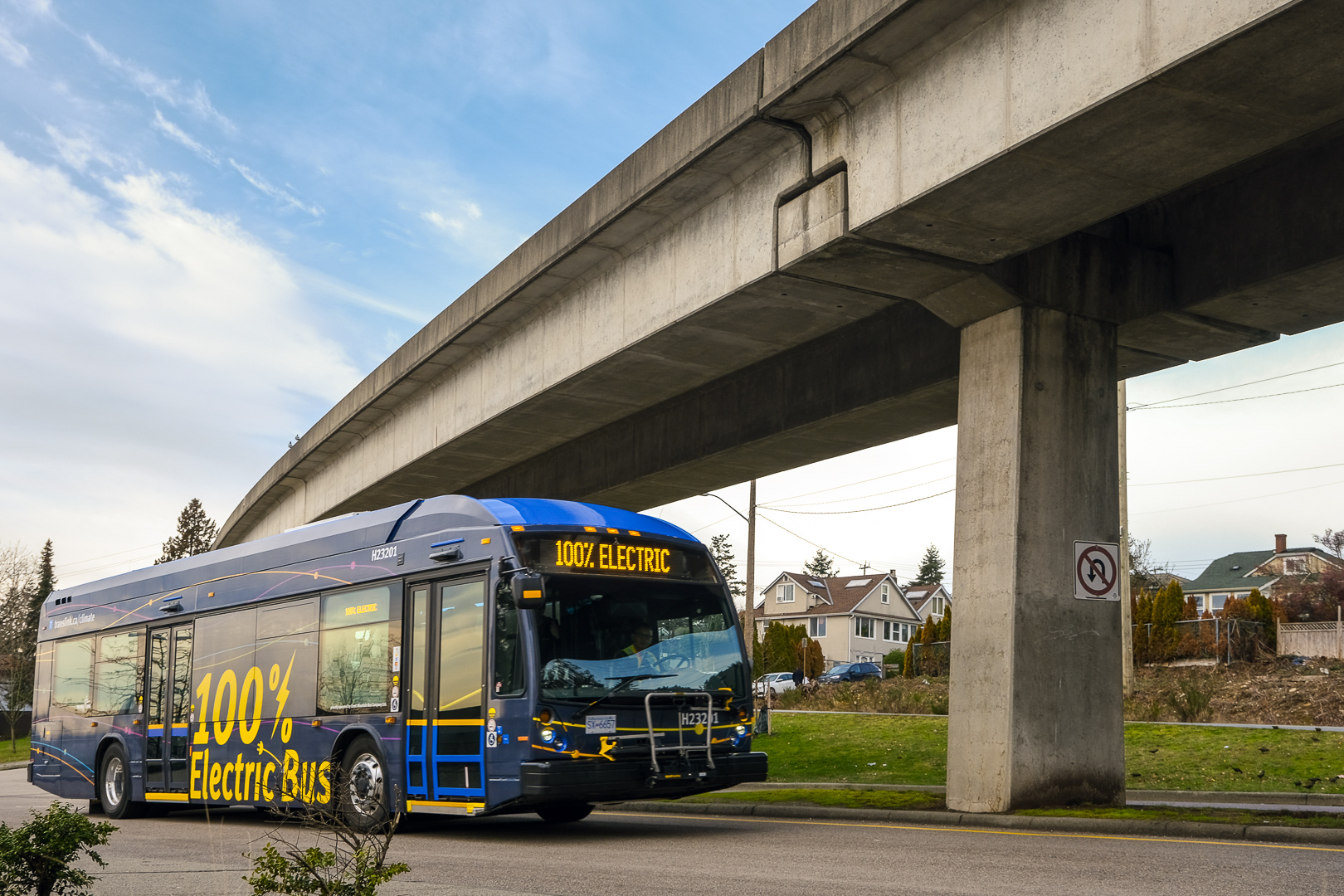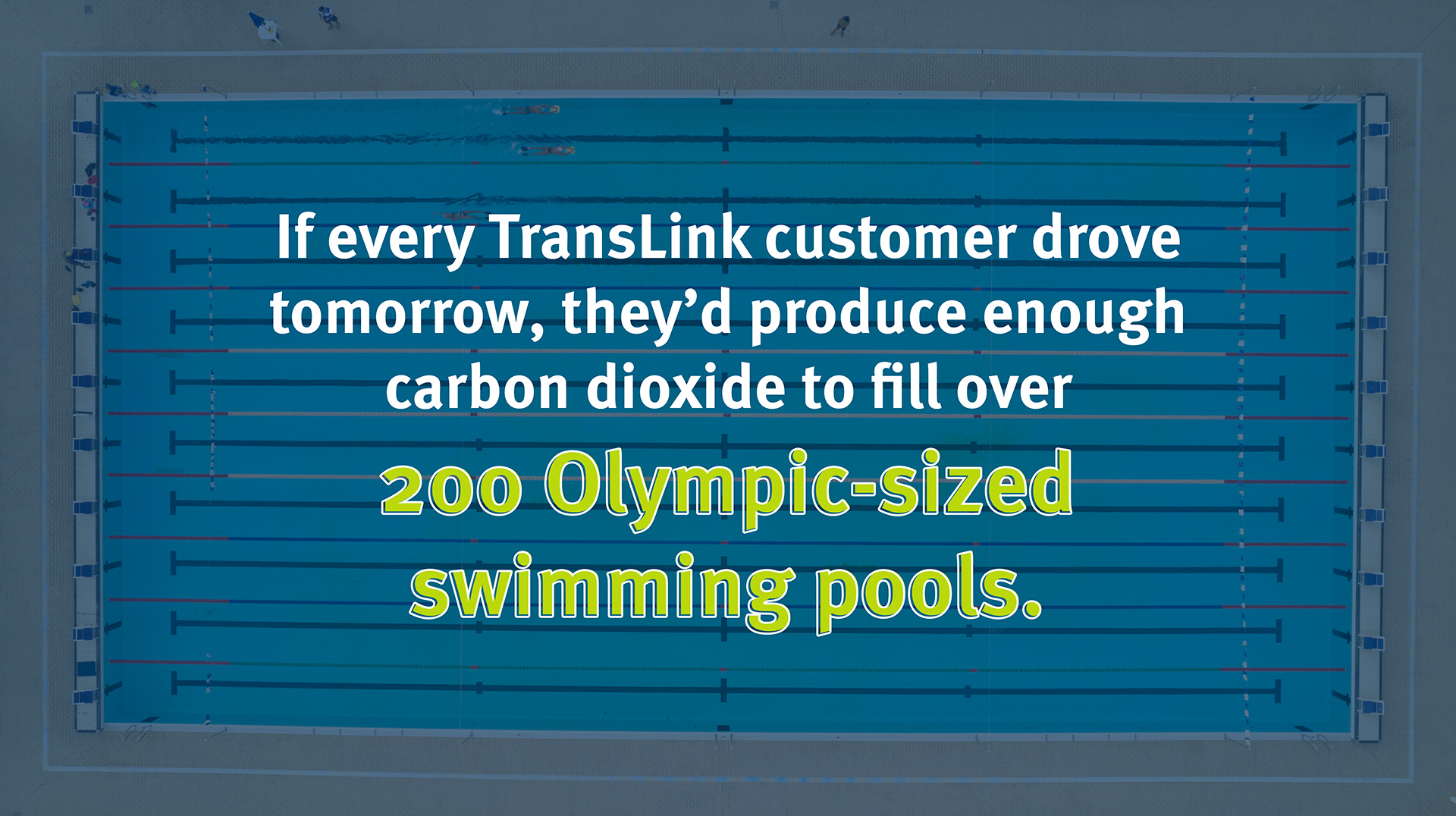How taking transit is good for the planet and your pocket
How taking transit is good for the planet and your pocket

Earth Day takes place on Monday, April 22, and we encourage you to Take Transit for the Planet on this day – and every day! Public transport is truly an effective way to reduce emissions, and you can save money while doing it!
Whether you ride transit regularly, occasionally, or very rarely, knowing why taking transit is good for the planet and your pocket will help you make informed decisions. You can make an impact with your everyday travel choices!
You cut your transportation carbon footprint by 80%.
Next time you ride a bus, train, or SeaBus, take a second to assess how many people are riding. 20 people? Over 100? Now imagine if every one of those people were driving. That’s the impact that public transportation has!
Driving is the biggest source of greenhouse gas (GHG) emissions in Metro Vancouver; and cars, light trucks, and SUVs are responsible for 32 per cent of regional GHGs.
Transit is only responsible for less than one per cent of emissions, even though it provides about 12 per cent of trips in Metro Vancouver.
By choosing transit, you cut your transportation carbon footprint by around 80 per cent compared to driving a gasoline vehicle.
TransLink customers collectively save 307,000 tonnes of GHGs per year by not driving a car.
If every TransLink customer drove tomorrow, they’d produce enough carbon dioxide to fill over 200 Olympic-sized swimming pools.
But because they take transit, they cut emissions instead! A trip on an electric bus or SkyTrain alone reduces GHGs by over 99 per cent compared to driving a gasoline vehicle. And a trip on a hybrid-diesel bus slashes emissions by 56 per cent compared to driving.
If you’re not already, join us in taking transit for the planet.
TransLink is working towards a zero-emissions fleet by 2040
Over the past few years, many of us living in British Columbia have felt the devastating effects of extreme weather. Whether increased precipitation and floods, heat waves, wildfire smoke, or sea level rise, climate impacts are projected to increase in frequency and intensity.
Although 2040 seems far away, we’re continually making moves today to reduce our emissions so you can get around with lower carbon footprint.
For example, we’re introducing renewable fuels — such as renewable diesel and renewable natural gas — as low-carbon transition fuels while we electrify.
Soon, route 100 between 22nd Street Station and Marpole Loop will be fully electrified when all 19 battery-electric buses go in service.
Construction is also underway for the first all-electric transit depot in Metro Vancouver, and we’re adding 460 battery-electric buses by 2030.
Electrifying our fleet takes time, and so does building the habit of taking transit. If you’re not a transit user, consider taking small steps like taking it on the weekends, or for nearby errands. That can go a long way and, in the process you could be cutting carbon and growing your savings.
You save about $8,000 per year by not owning and operating a car
If you’re a transit user who uses a Monthly Pass which costs between $1,259 – $2,273 per year, you’re saving up to $8,000 per year by not owning a car.

Owning a new car can cost about $10,000 per year, which includes fuel, maintenance, license, insurance, and monthly payment costs. With a Monthly Pass that costs between $1,259 – $2,273, you save more than 75 per cent the cost of owning and operating a car. The rest, you can keep in your pocket to invest, save for a bigger purchase, start and grow your hobbies, or whatever you want!
![]()
Now that you know how impactful taking transit is to the environment and your wallet, consider doing it more if you’re not already. You also have the option to incorporate transit with cycling. Some of our transit stations have Bike Parkades, Bike Lockers, and Bike Racks to park your bike.
In days you need to drive a car, consider using carshare services like Modo and Evo. There are many vehicles located within walking distance from transit hubs that you can switch to.
Taking transit is good for the planet and your pocket. So, take transit on Earth Day, April 22 and every day.






